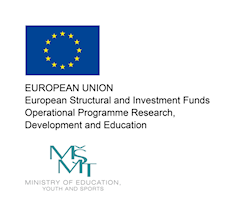From the series
Institute of Thermomechanics Seminar:
Implosive magnetocumulative generator for effective energy conversion
Dr. Jiří Šonský, Institute of Thermomechanics of the CAS, v. v. i.
Wednesday, April 5, 2017, 10:00
Conference Room B

 |  |  |  |  |  |
 Czech National Committee for the Properties of Water and Steam (CZ NC PWS) in collaboration with University of West Bohemia will organize IAPWS 2011 Annual Meeting & Symposium held in Pilsen on September 4-9, 2011. The objective of the annual IAPWS meetings is to review and evaluate the results obtained in the working groups during the previous period, to prepare IAPWS documents for publication and to determine new objectives and assign tasks for the next period.
Czech National Committee for the Properties of Water and Steam (CZ NC PWS) in collaboration with University of West Bohemia will organize IAPWS 2011 Annual Meeting & Symposium held in Pilsen on September 4-9, 2011. The objective of the annual IAPWS meetings is to review and evaluate the results obtained in the working groups during the previous period, to prepare IAPWS documents for publication and to determine new objectives and assign tasks for the next period.
As part of the Meeting a one-day Symposium on Water and Aqueous Mixtures: Research for Future Energy Technologies is held on September 7. The programme of the Symposium can be found here. The registration page is open until August 22, 2011. »»»
 Mark M. Rashid is a professor at the Department of Civil and Environmental Engineering of University of California, Davis, California, USA. His research interest include fracture mechanics, computational mechanics, fluid-structure interaction, blast loading, material modeling, plasticity, MEMS.
Mark M. Rashid is a professor at the Department of Civil and Environmental Engineering of University of California, Davis, California, USA. His research interest include fracture mechanics, computational mechanics, fluid-structure interaction, blast loading, material modeling, plasticity, MEMS.The presentation is a part of the Presentation Series on Computational Solid Mechanics held on August 3-17, 2011 in the Institute of Thermomechanics ASCR v. v. i. »»»

Czech Society for Mechanics – the expert group on Computer Mechanics and Institute of Thermomechanics ASCR v.v.i. will organize the following presentation series on occassion of the visit of Prof. M. Rashid, University of California, Davis, USA in the Institute of Thermomechanics ASCR, v.v.i. The presentations will be held in Lecture Room B of the Institute of Thermomechanics, Dolejškova 5, Praha 8 (directions); they will start at 10am on each day. »»»
The Czech Society for Mechanics – the expert group for Computational mechanics and the Institute of Thermomechanics AS CR wish to invite you to a lecture by »»»
Dynamic nonlinear elastic behaviour, non equilibrium dynamics, first observed as a curiosity In earth materials has now been observed in a great variety of solids. The primary manifestations of the behaviour are characteristic wave distortion, and slow dynamics, a recovery process to equilibrium that takes place linearly with the logarithm of time, over hours to days after a wave disturbance. »»»
Summary
Dynamic nonlinear elastic behavior, nonequilibrium dynamics, first observed as a curiosity in earth materials has now been observed in a great variety of solids. The primary manifestations of the behavior are characteristic wave distortion, and slow dynamics, a recovery process to equilibrium that takes place linearly with the logarithm of time, over hours to days after a wave disturbance. »»»
Full title: Optimization of coded excitations with Symmetry Analysis : Formalism and applications in NDT with perspectives in ultrasonic nonlinear imaging of bio-materials »»»
In the stability theory of shear layers, the term `local stability' refers to the stability properties of a particular velocity profile at a given position in the flow. When the basic flow develops the streamwise direction, e.g. in a growing boundary layer, the changing local stability properties can be mapped out downstream. If there are regions of local absolute instability then there is the possibility of a `global instability' of the entire flow. When the basic flow varies slowly in the downstream direction the global stability can be determined from the local stability. »»»
Large deformations of a solid are investigated. We use a polar decomposition of gradient matrix F = RW (R is rotation matrix, W is stretch matrix). Large deformations of solids involve local spacial interactions either in an extension or in a rotation. Because local interactions are well described by spacial gradient, matrix W intervene for extensions and matrix gradR intervene for rotations. Thus the free energy depends on W and on gradR. Moreover, free energy takes into account the local impenetrability condition. Reactions to this impenetrability condition are important in constitutive laws. »»»
Turbulence will be introduced as the typical state of real flowing viscous fluids (historical overview). Attributes of turbulence will be presented (diffusivity, deterministic chaos, fractal structure…). A mathematical model will be introduced and its basic properties will be shown including the Kolmogorov theory. Then a few phenomenological aspects will demonstrate the typical features of the phenomenon (stability, complexity…).
© 2008–2014 Institute of Thermomechanics ASCR, v. v. i.